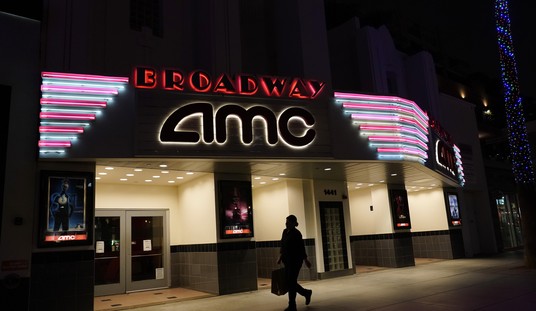You may ask yourself: What’s a SINO? Why, it’s a Socialist In Name Only, which we can add to the pantheon of -INOs during their hunting seasons, which last 365 days a year. First we had Republicans (RINOs), then conservatives (CINOs), eventually Democrats (DINOs), and probably progressives at some point, although PINOs looks a little too close to a term most sites moderate. Politico offers a lengthy essay from self-described socialist Frederick DeBoer today that calls into question Bernie Sanders’ bona fides as a legitimate socialist — and makes a better point about the practical impact of his quixotic run for the Democratic presidential nomination:
Though Sanders speaks with more candor and vitriol about inequality and corporatism than most Democrats, he is more likely to call for more a more muscular social safety net and higher taxes than for the nationalization of the banks. Sanders is not Zell Miller, but neither is he Eugene V. Debs. This has created a split in socialist circles: some see the Sanders campaign as an opportunity to popularize socialism with the public at large while others fear that it is a trick to bring socialists back into the Democratic fold.
I can’t help but respect those who see support for Sanders as a strategic move for the far left, and who can engage with his campaign without the kind of emotional investment I’ve always fallen prey to. Socialists enthusiastic about Sanders emphasize that he and his campaign are clearly of more relevance to contemporary socialist politics than any major presidential run in recent history. “Sanders is moving the discussion to the left, and mobilizing an absurdly high number of people,” says socialist Bhaskar Sunkara, the editor and publisher of the explicitly Marxist-socialist Jacobin magazine, in an interview. “I want to take the risk of reaching out to all these people comfortable with supporting a self-described socialist candidate.” Sunkara sat on a panel at Socialism 2015 focused on the Sanders campaign and its relationship with the socialist left.
Ashley Smith, a board member of the International Socialist Review who also sat on the Sanders panel, has criticized Sanders not only for his generally conventional policy preferences but also for the likely political outcome of his campaign. “Sanders refused to consider an independent presidential campaign not because he had little chance of winning, but because he didn’t want to compete for votes with the Democrats’ eventual nominee,” Smith wrote in an article for the Socialist Worker, pointing out that insurgent Democratic campaigns frequently end up merely corralling critics of mainstream Democratic politicians into support for the eventual mainstream candidate. As Smith writes, “by steering liberal and left supporters into a Democratic Party whose policies and politics he claims to disagree with, Sanders—no matter how critical he might be of Hillary Clinton—is acting as the opposite of an ‘alternative.’”
This phenomenon is often referred to as “sheepdogging,” a term suggesting that candidates like Sanders simply function to capture left-wing unhappiness within the party and subdue it. (Indeed, it isn’t difficult to find images depicting Sanders as a literal sheepdog, herding voters toward Clinton, in online left-wing communities.) Ina scathing piece for Black Agenda Report, the essential journal of radical black politics, Bruce A. Dixon writes, “Bernie Sanders is this election’s Democratic sheepdog…. Sheepdogs are herders, and the sheepdog candidate is charged with herding activists and voters back into the Democratic fold who might otherwise drift leftward and outside of the Democratic party.” The Sanders candidacy, according to Dixon, will simply redound to the benefit of inevitable nominee Clinton, and in so doing turn activist energy into just more politics as usual.
The irony of the essay’s headline — “Is Bernie Sanders a Socialist In Name Only?” — is that “socialist” is not a status to which most politicians aspire. It’s a brand with a very small reach. The -INO charge usually relates to people attempting to assume the mantle of a popular brand but without the requisite authenticity to justify it. For the last several decades, Democrats spent more time running away from the “socialist” label while their opponents did their best to make it stick. One politician finally emerges to embrace the label, and DeBoer cynically deduces that Sanders isn’t worthy of it.
Even so, DeBoer has a point about the net effect of Sanders’ run, at least to some extent. Having Sanders on the stump allows the socialists within the Democratic coalition to exit from the shadows and come into the light, at least for a brief period. That could allow them to feel more welcomed within the party, which would theoretically keep them more engaged for the general election, even if the nominee won’t really nationalize the banks, energy sector, or frogmarch Wall Street execs for the People’s Tribunals of their fevered dreams.
That shows the risk of backfire from “sheepdogging.” For that to work, the saps have to be in on the con. If they’re not … watch out when the marks figure out they’ve been had. When it becomes apparent that, having locked up almost all of the big donor/corporate money, Hillary Clinton’s inevitable and Sanders never had a prayer, those same socialists will roar in indignation. Even if Hillary had to bail out of the primary for some reason, the nomination won’t go to a socialist but to someone who represents the mainstream of the Democratic Party. The blowup of the newly legitimized socialist wing of the Democratic coalition could wreak real havoc within the ranks of activists.
In many ways, though, this is just the mirror image of a similar battle seen in the Republican coalition, which has its own “sheepdogs.” It’s not too difficult for conservatives to rework this passage, for instance:
For many socialists, the only thing worse than the Republicans are the Democrats. The former, the argument goes, is an explicitly corporatist, elite-dominated party, while the latter dresses up its corporatism and domination by moneyed interests with progressive rhetoric.
Perhaps the most interesting part of an already fascinating essay (DeBoer is a fine writer) is the exposure of fractures on the other side of the aisle. The media likes to play up the GOP civil way every two years, but Democrats have the same problem — and Sanders’ run is likely to exacerbate it. He may be a SINO, but he’s also a sign of the times in the Democratic coalition.








Join the conversation as a VIP Member